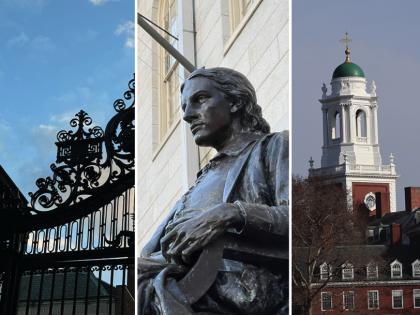Sometime in 2019, U.S. District Court Judge Allison D. Burroughs will rule on whether Harvard College impermissibly discriminates against Asian-American applicants, the claim brought by Students for Fair Admissions. Her ruling, if ultimately appealed to the Supreme Court, may significantly affect selective institutions’ affirmative-action criteria and admissions processes.
Meanwhile, the arguments advanced by the plaintiff, and the University’s response, shone a light on other factors that go into Harvard’s review of applicants, including consideration of legacy status (the children of alumni); athletic ability; family philanthropic support for the institution; and affiliation with faculty and staff members. The existence of such factors came as no surprise to close observers of admissions. But given the public’s focus on the importance of winning a golden ticket to an elite college in an era of enormous applicant pools and single-digit admission rates, the practices detailed during the trial became fodder for news coverage in The Boston Globe, New York Times, and Wall Street Journal. The Times even ran an article headlined “Getting into Harvard Is Hard. Here Are 4 Ways Applicants Get an Edge”—a seeming blow to meritocracy.
And in an era of widening socioeconomic inequality—mirrored in growing gaps between public and elite private institutions (see “The College Chasm,” November-December 2017, page 50, by Duke’s Charles T. Clotfelter, Ph.D. ’74)—and rising public resentment of the costs and culture of the elite schools, it would be fair to say that such institutions have a problem.
Is it a problem Harvard ought to do something about?
Lawrence S. Bacow inherited the lawsuit when he became president last July. He brought to the job an affecting life story: growing up as the son of refugees, and, as a result of a superb higher education at MIT and Harvard, being presented with unimagined opportunities. Access and financial aid were themes of his entire Tufts tenure. In mid September, on his first major trip as president, back home to Pontiac and Detroit, his core messages were access to higher education—whether at Harvard, the University of Michigan, or Wayne State University (where his father earned his degrees at night, paying his way by parking cars during the day)—and the resulting opportunities (see harvardmag.com/michigan-trip-17). “Talent is flatly distributed,” he said then. “Opportunity is not.” His values could not be clearer.
Nor could his concern about the external environment. His Harvard presidency comes amid changing public perceptions of the value of higher education and populist criticisms of the kind of institution where he has studied and worked since 1969. The difficulty arises from the very factors that made them excellent—and elite. During a conversation at Mass Hall as the trial concluded, Bacow observed, “This place did not build itself.” Prior generations gave of their resources and time “to create the institution that exists today,” and is therefore able to advance understanding and educate new cohorts of students. “Each generation helps the next,” he continued, and “it is important to continue to try to ensure that we have that kind of loyalty and resources.…Is it surprising that we recognize people like that? I don’t think so.”
As for the preference given to legacies, Bacow said it is not pointed out often enough that “Legacies are, as a group, arguably the most qualified applicants…by any measure.” That should be so: highly educated parents ought to be, and disproportionately are, interested in securing the benefits of that kind of learning for their progeny. Less happily, of course, in a society split socioeconomically, those fortunate elders have enormous means to bring to bear on the challenge, thus replicating inequality across generations.
How to reconcile these seemingly opposed forces? Before the Great Recession, William G. Bowen, president emeritus of Princeton (who later coauthored work with Bacow; the two men admired one another) and colleagues addressed these questions. In a book excerpt published in these pages (“A Thumb on the Scale: The case for socioeconomic affirmative action,” May-June 2005, page 48), they acknowledged the institutional interest in nodding toward legacies and donors—and legacies’ academic credentials. (They separately made the case for continuing affirmative-action policies.) But they also vigorously favored “giving some preference to well-qualified applicants from modest backgrounds”: the academically excellent, lower-income applicants who are still dramatically underrepresented at selective institutions—at a now-evident cost to those institutions’ fulfillment of their mission, and their public reputation. Accordingly, they urged a “thumb on the scale” equal in force to the legacy preference.
Would Harvard move in such a direction? Absent a larger student body (the route Princeton and Yale are now pursuing), doing so would seem to imply some other trade-offs, at a time of ever scarcer slots in every entering class. It may be awkward to conduct such a conversation while the current ligitation proceeds. But over time, Harvard may want, or need, to examine its admission preferences—including those extended to athletes and its employees’ children. Doing so would seem to present the University, again, the opportunity for leadership.
~John S. Rosenberg, Editor








